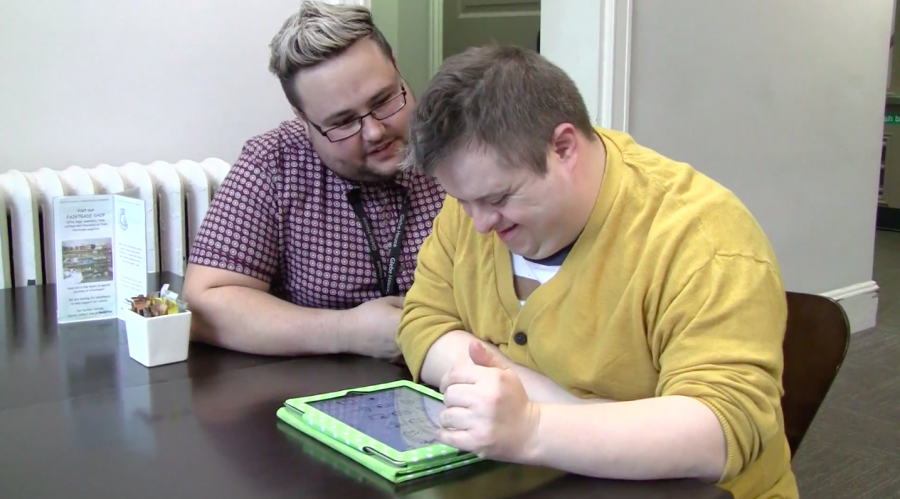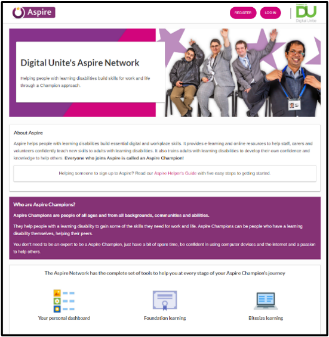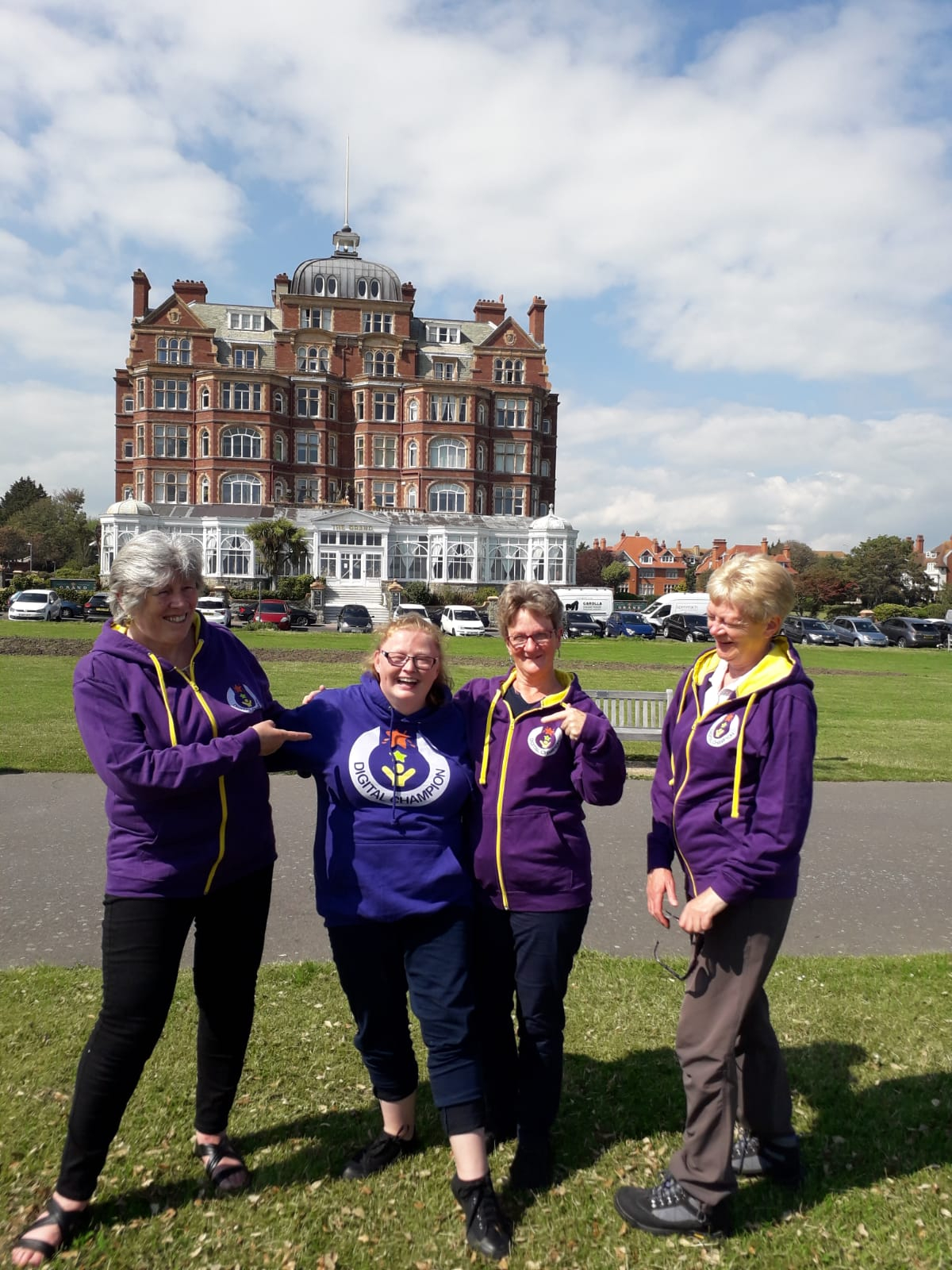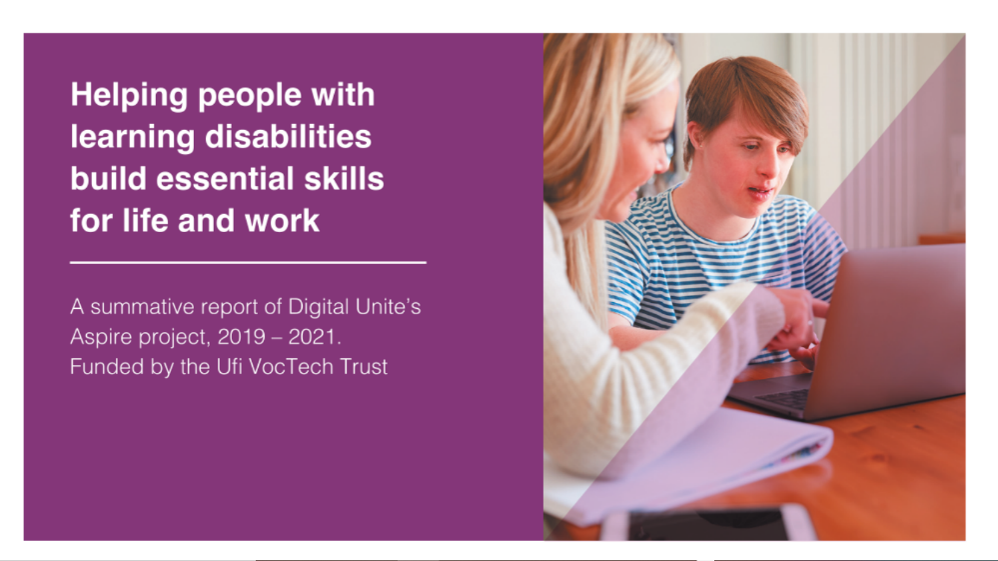
In the UK, there are an estimated 800,000 working age people with mild-to-moderate learning disabilities in the UK but only 17% are in work¹. Covid-19 has exacerbated the problem as people with learning disabilities face further exclusion from the workplace due to the increasing reliance on digital skills, the move to remote working and rising unemployment.
Many people with learning disabilities want to work to have a fulfilling and independent life and, with the right support, they can provide organisations with a motivated and reliable workforce.

With all that in mind, our Aspire programme was launched in 2019. Funded by the Ufi Charitable Trust, its mission was to help people with learning disabilities develop essential skills for life and work. Underpinned by evidence from a recent pilot with Mencap, Aspire was a dedicated Champion training model and e-learning platform for people with learning disabilities and for organisations who support or employ them.
During this two-year programme, Aspire trained over 300 Champions who helped more than 1,000 people with learning disabilities. It also took us, Digital Unite, on our own learning journey, extending the boundaries of what we thought we know about skills training and development.
Here are five of the biggest learnings we gained:
You’ve got to partner up
Throughout the Aspire project, we were fortunate to team up with two subject matter experts and leaders in supporting people with learning disabilities. The Rix Research and Development Centre became our technology partner, helping us develop a new type of e-learning and supporting user research. Mencap, the UK’s leading charity for people with a learning disability, supported us with scoping, developing and testing our learning content. Their deep understanding of the learning disability community and willingness to collaborate gave us open door access to the authority and expertise we needed.
Aspire filled a distinct gap in the market
As we engaged organisations with Aspire, it became clear very quickly that providing skills training aimed directly at the learning disability community was unusual. It was not something this cohort was used to but it was something they welcomed with open arms. People with learning disabilities need help with digital and workplace skills but in a way that’s suited to them. And organisations who support them, need training and help too. And there is huge appetite for it. In one of our Aspire user surveys, 96% of Champions want to do more to help people with learning disabilities improve their skills.
Co-creation of the learning experience is imperative
Throughout Aspire’s technical development we consulted with RIX’s PurpleSTARS (a group of adults with learning disabilities). This user panel was invaluable as the number of poor assumptions that would have made about the e-learning, with the best of intentions, would have detrimentally affected the project’s success. Removing complexity from key pages such as the user dashboard, making sure it was fully accessible on tablets which are used prolifically by people with learning disabilities and making buttons clear and unmissable were all valuable insights we could have easily bypassed.

The enthusiasm amongst people with learning disabilities is boundless
The engagement and enthusiasm from people with learning disabilities is like no other. Their positive outlook and their appetite for learning shines through. They want to improve themselves and they want to help others in the same way. Take Ajay for example. He joined our Aspire programme as a Champion in 2020. He got involved in the development of new online training, completed his own courses and then went on to help other adults with learning disabilities improve their skills and confidence. In his own words, being a Champion has made a ‘huge difference to my life’ and ‘made me happy’. Ajay’s message is ‘ You can do it and you can live it. YES’
The Aspire approach can be applied anywhere
Through Aspire we had always intended to learn much more about the learning and employability barriers people with learning disabilities face and how our expertise could help to overcome them. And we did that. But one of our unintended outcomes included a complete rethink of our traditional Champion training and support, how that can be made more accessible and how the new technology we’d developed for Aspire can be used with other specific sectors or skills challenges. Indeed, we have developed a new health track, working with NHSX to create training for Digital Health Champions, a vital role during the pandemic as people access health advice and services online
Aspire has shown us that there is a huge potential and opportunity for empowering and emboldening people with learning disabilities through a Champion approach. That this peer-to-peer model builds confidence, skills and motivation. And that it inspires both people with learning disabilities and those who support them.
"I love it"
As a final word, we’ll leave you with this:
Baljit is a 29-year-old woman with learning disabilities and additional health needs, requiring a lot of support in many areas of her life. She can use a computer independently using assistive technologies. Baljit was trained to be an Aspire Champion and has gone on to teach other people with learning disabilities to use Zoom, supporting staff from the day centre which she attends twice a week. Being a Champion gave Baljit a confidence and motivation to do more things. As a result, she’s secured paid employment on another digital project run by the RIX Centre. When asked what the best thing about this has been, Baljit says ‘I now know that I can do it. I love it’.

2024 Update
This was a funded, time-specific project. Aspire as stand alone course couldn't be maintained beyond the end of the funding, so the learning was adapted to sit as a single course on the Digital Champions Network and in these free easy-read guides
¹Measures from the Adult Social Care Outcomes Framework, England 2017-18